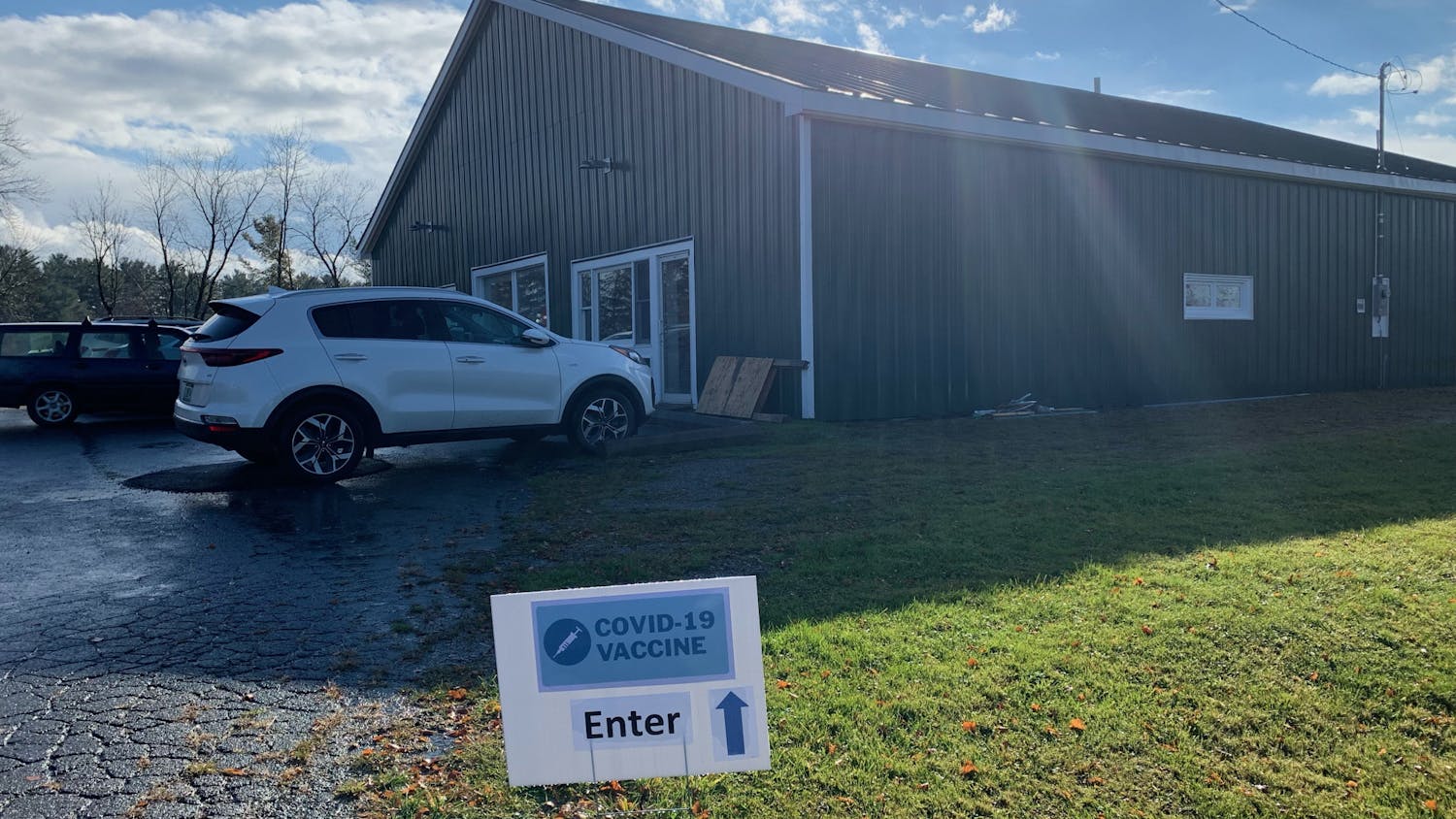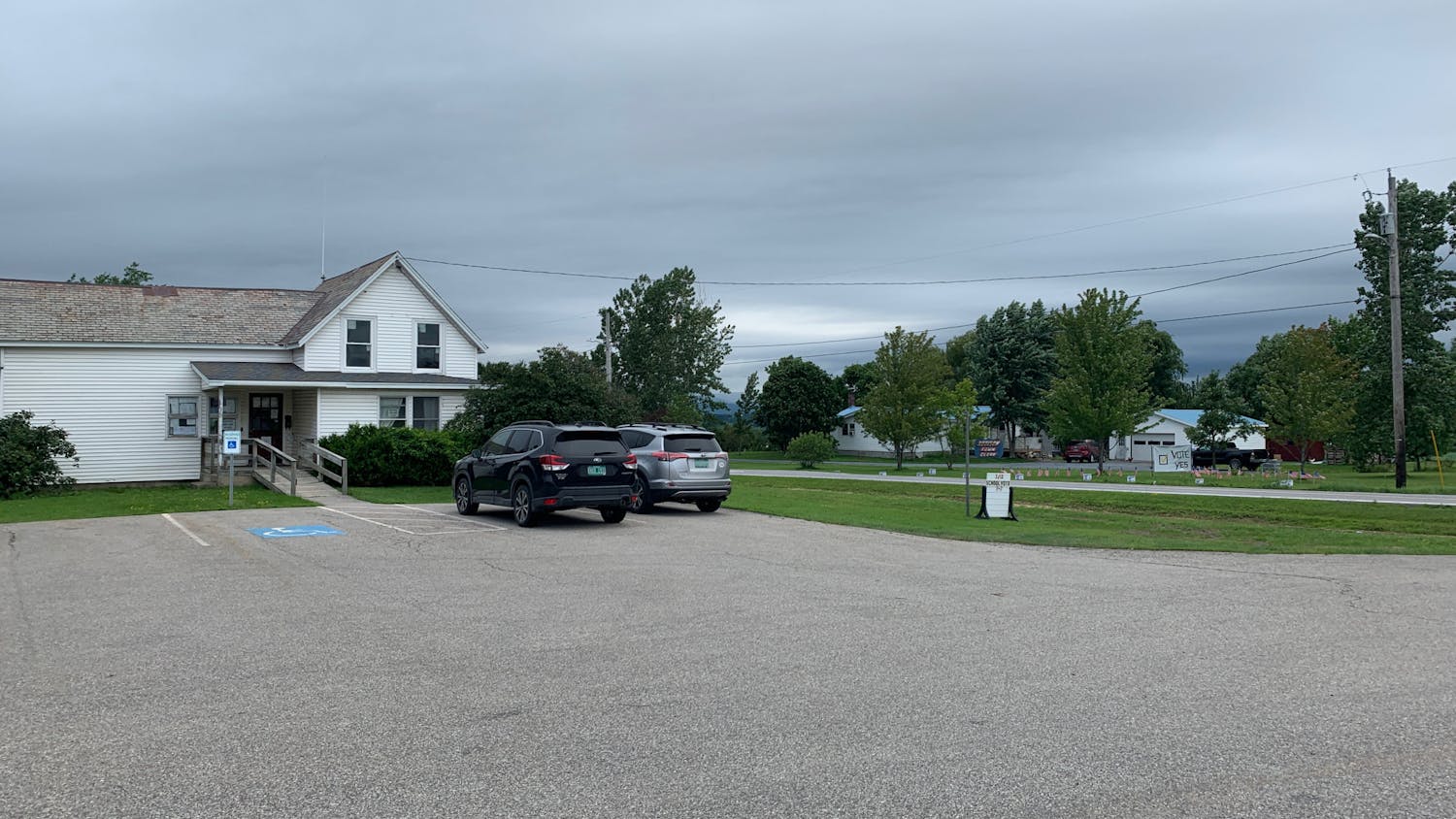On Wednesday, Nov. 10, the Addison County Relocalization Network (ACORN) hosted its annual meeting, where four women from across the Champlain Valley’s food system discussed food insecurity, food service work and activism within the local food system in a virtual panel moderated by Lindsey Berk, the executive director of ACORN.
Berk began with a land acknowledgement, and then introduced ACORN — a networking organization incorporated as a nonprofit in 2009 and run by an eight-member volunteer board. Its mission is “to promote the growth and health of local food and agriculture in Vermont’s Champlain Valley by providing support to our farmers and food producers, engaging in food education and ensuring access to healthy food for all members of our community,” according to ACORN’s website.
“We have served as a catalyst and incubator for new initiatives, and pride ourselves on our ability to be flexible and adapt to the current needs of the local food system,” said Berk at the meeting. In 2021, ACORN ran programs including the Eat Local Vermont Mobile App, the Local Food and Farm Guide, Tour de Farms, Online Wholesale Market, Addison County Farmacy, Cultivating Connections Newsletter, Farm to School and Statehouse to Farmhouse.
Due to global supply chain shortages, bare shelves can be seen even at local markets such as the Middlebury Co-Op. According to Berk, these shortages mean that collaboration within the local food system is more important than ever before.
“The Co-Op staff is working around the clock to source items from new producers, in an effort to fill these gaps, but between buying criteria assessments, price assessments, entering new items into a [...] system, generating tags for shelves, procuring orders, receiving, and stocking, onboarding new items is a lengthy process,” Berk said. “At the end of the day, we need to be sourcing from smaller distributors and independent producers, shortening our supply chains wherever we can.”
Following Berk’s speech, the panelists began to highlight aspects of their work within the food system that are often overlooked.
Pauline Stevens, a second generation farmer at the Golden Russet Farm in Shoreham, explained that the seasonality of farming means that more work happens behind the scenes than people realize. “After [Thanksgiving], we’re busy planning for the next season, so that includes buying seeds, meeting with our wholesale accounts where we sell things, creating our seeding and planting charts, hiring people for the next season, we're still delivering to places like the Co-op twice a week,” Stevens said.
Samantha Langevin, head chef at American Flatbread and a board member of the Middlebury Co-Op, and Laura La Vacca, food services director for Addison Central School District, highlighted the importance of remembering that jobs in food service are real, complex and demanding, particularly in school nutrition programs.
“Whether you’re washing dishes, or running a kitchen, those can be extremely and equally complex, and physically and mentally demanding jobs,” Langevin said. “Within [our food system], what are the jobs that we don’t think about, or the jobs that are faceless, and I think that also includes people working in food service and hospitality.”
La Vacca stated that, during the pandemic, “the people who were most accustomed to dealing with and mitigating the transmission of disease were our school nutrition professionals.” She added that the tendency for people not to see the humanity of food service workers has ramifications for how they are valued and paid, which is especially relevant in Vermont, where seasonal tourism is coupled with a current labor shortage.
Anna Freund, local foods coordinator at HOPE, explained that food insecurity is more complex than just financial insecurity. “Some of the people we serve may not have a kitchen. They may live in a hotel, they may be homeless, they may have a family and have a beautiful kitchen, but not a budget to buy the food they want to provide for their families,” Freund said. “And so, thinking about how we help to meet all of those needs is an interesting challenge.”
Despite the many challenges posed, the pandemic has also created opportunities for growth and improvement across the local food system. American Flatbread was able to implement renovations during a two-month period of closure, as well as shift the way they pay their employees upon reopening. “We substantially raised wages for every position in the kitchen, so that we no longer have tipped employees, which are employees like servers who are paid below minimum wage with the expectation that tips from customers will make up the difference,” Langevin said.
According to La Vacca, the pandemic has also quickened progress in the ongoing movement for universal school meals. “With the onset of the pandemic, school meals are completely funded at the moment through the USDA, through a couple of different funding umbrellas,” La Vacca said.
The necessity of home delivery of food caused by the pandemic also created opportunities for providing support to the vulnerable during times of isolation, through the creation of food service delivery routes. “I think we’ve all learned how detrimental isolation from one another is, and [Covid-19] has presented opportunities for collaboration and creativity, to find ways to support one another,” Freund said.
Despite strong collaboration between the farming, restaurant and consumer sectors of the local food system, the panelists pointed out that there is still room for improvement. Langevin noted that restaurants can be further incentivized to purchase local foods and partner with schools. “We’re so used to being in our little separate boxes, but we don’t necessarily have to be,” she said.
La Vacca and Freund reiterated the need for real conversations that center around the humanity of food service workers and destigmatize the factors that contribute to food insecurity. “It begins in this conversation, and every conversation that we have beyond this meeting, when we talk to our coworkers, our colleagues, our friends and our neighbors,” La Vacca said.
The panelists also discussed inclusivity, and the need for culturally appropriate foods. Knowing who lives in the local community, including migrant workers, and being more inclusive of these groups when serving local food needs is key, they said. “You also have to make the minority populations more visible, and integrated into the community,” Langevin said.
Freund said she believes that this could be facilitated by organizations working together and the compilation of contact information via healthcare. “Communication is huge, [along with] community building,” she said.

Maya Heikkinen '24 (she/her) is a Copy Editor.
She has previously served as an Editor at Large, News editor, copy editor and staff writer. Maya is majoring in Conservation Biology with a minor in Spanish, but is also passionate about writing. She is from Orcas Island, WA, and loves being immersed in forests, running/hiking, gardening, and hanging with plants and cats. In addition to The Campus, she has been involved in SNEG and the currently extinct WildMidd.



